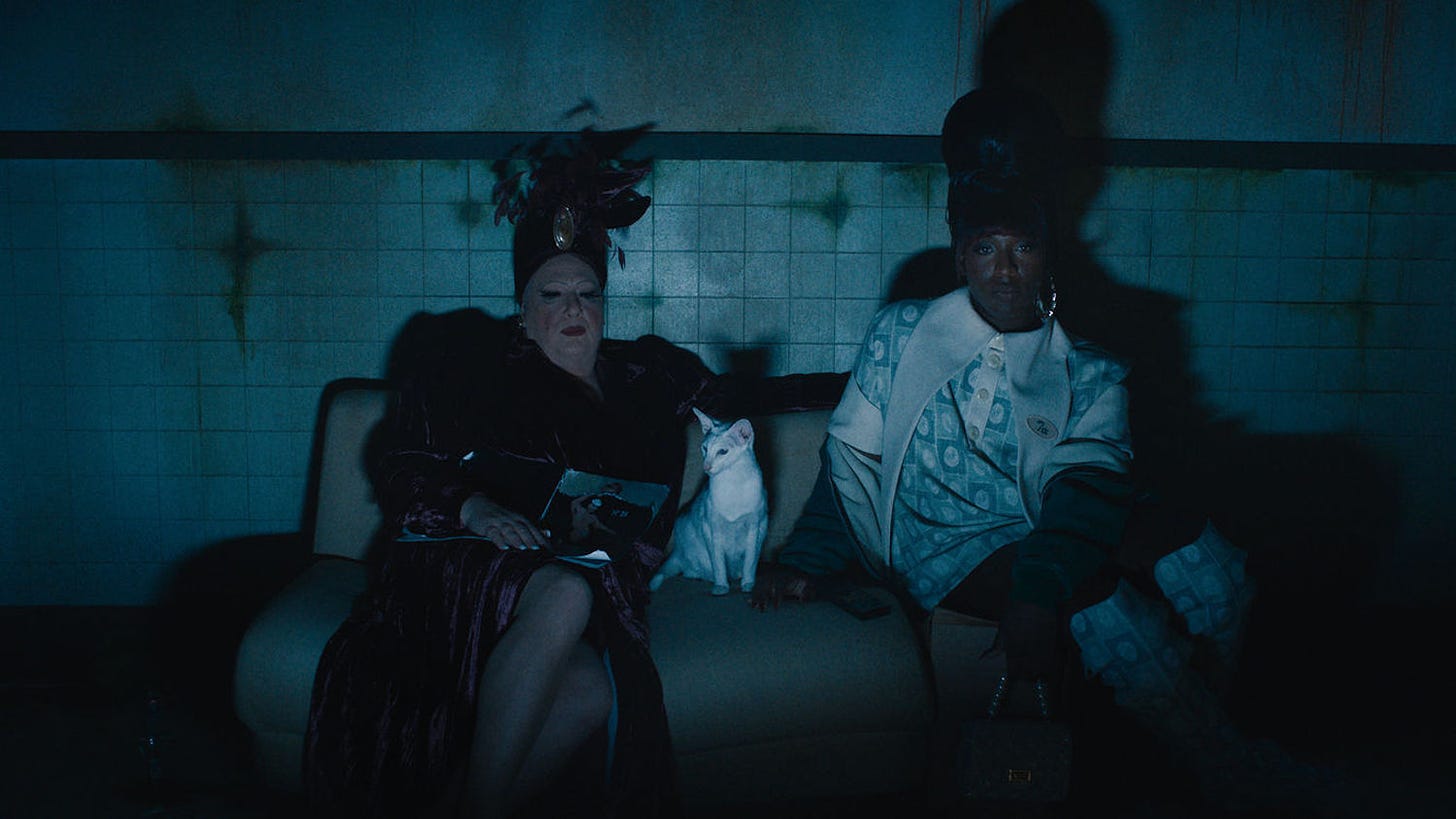I’ve never been to Rotterdam Film Festival. I’ve never even been to Rotterdam. The idea of hanging around a port city in January sounds… rainy. One day. In the meantime, I have digital access. Thankfully a brief virtual trip through Rotterdam is a fun return (as of the time of writing) to the film festival world after a two month hiatus. Today, we have the three film festival genres. They all deal with being lost, forgotten, neglected and rejected in some form. Stay tuned for:
An Experimental Docu-Fiction Hybrid
A Mid European Relationship Drama
An Important Social Issue Film
Lost Spaces
My first festival film of the year (written before my review of Munch) is certainly a festival film. Playing in the Tiger Competition — dedicated to up-and-coming filmmakers — Playland (Georden West, 2023, feature image and above) is exactly the kind of playful, hybrid docu-fiction that characterises a large swathe of experimental cinema you can expect at a serious European film festival.
Merely 72 minutes long, it could’ve easily slotted in the Berlinale Forum, or Locarno’s Fuori concorso. Bending form, celebrating queerness, and probably alienating the average viewer through its complete lack of any semblance of story, Playland has probably zero chance of commercial success. After all the comfort watches and Oscar-baiting crap of December, it’s just what I was missing in my life. An actual arthouse film.
The Playland Café (1937-1998) was once Boston’s oldest gay bar. Located in the notorious Combat Zone — an area filled with strip clubs, x-rated movie theatres (as seen in The Departed (Martin Scorsese, 2006) and prostitution — the bar acted as a vital place for queer expression even as it was constantly under threat from the powers of the city.
Finally closed down by undercover cops in 1998, it is lovingly re-imagined as a melancholy, lightly haunted house by debut director Georden West. Archive audio — talking about everything from homophobic attacks to the legacy of bussing to city councillors discussing their plans for the city — plays over artificial, theatrical stagings of the diverse staff and guests. Decked out in pink pastel colours like escapees from Paddington 2’s (Paul King, 2017) prison, or wearing sailor hats that evoke both fast food restaurants and 50s musicals, the staff are both workers and performers; rarely pouring drinks or making food, the film is far more interested in exploring their unique aesthetic than a generic remembrance of what made the bar special.
It shows that gay bars not only serve as essential spaces for the queer community, but they also, to borrow a drag term, simply serve: this is not just a dive where you smoke cigarettes and polish off Miller Lites, but a space as aesthetic; drenched in pink and purple lights, decked in oddball decor and featuring colourful customers. Planometric frames, curling smoke, pageantry and dance sequences co-mingle in moments of both vibrant fantasy and more somber contemplation, providing a gorgeous, if occasionally plodding, elegy to the types of places that are sadly, slowly dying out.
One disembodied voice whispers at the end that “maintaining artifice is both exhausting and necessary.” Acting at times like a queer Sergei Parajanov film, the endless frames of characters standing straight on, smoking, sighing, slowly working or singing, accompanied by light, ambient synth music, or more difficult recollections of racial and queer oppression, certainly overwhelms the viewer — especially when there is no genuine narrative to hold onto. But there is an urgency to each frame, as if West is trying in vain to keep the bar alive, all the while knowing that they can’t hold on forever. It’s up to the next generation to keep the spirit of Playland going.
Read the rest of the reviews over at JourneyIntoCinema.com


